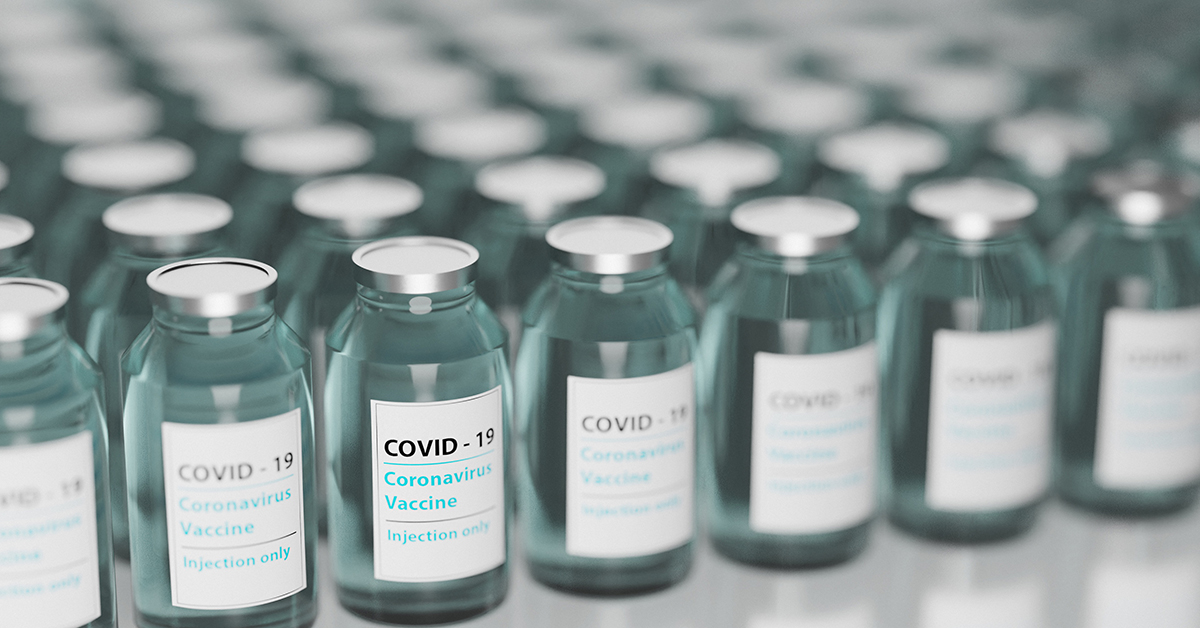Background
In December, the FDA gave Emergency Use Authorizations (EUAs) for two COVID-19 vaccines, each requiring two doses to be administered several weeks apart.[1] CDC guidelines recommend that essential workers be vaccinated during the first phase of the vaccination rollout. Indeed, many frontline healthcare workers have already received one or both doses of either the Pfizer-BioNTech or Moderna vaccine during what the CDC dubbed Phase 1A. As an integral part of the supply chain, the warehousing and logistics industry workforce has been deemed essential. The CDC guidelines recommend that non-frontline essential workers (e.g. those outside of the healthcare sector and emergency services; those that do not provide direct services to vulnerable populations; those not involved in food or beverage preparation, etc.) receive the vaccine in what would amount to the 3rd round of the first phase of vaccinations (1C)[2]. However, individual states are in charge of the actual rollout within their borders.[3]
The warehouse & logistics industry should expect, then, that workers that fall outside of the age ranges (or health conditions) approved for earlier phases will be able to receive a vaccine sometime during the 2nd quarter (or potentially late 1st quarter). Therefore, companies need to determine their own vaccination policies, if they have not already. Will vaccinations be mandated? Where will employees have to go to get vaccinated? How should companies address temporary workers and independent contractors?
Should Vaccinations Be Mandatory?
Within the industry, there is no consensus as to how companies should handle vaccinations. Nor are there any federal or state mandates for private or publicly traded companies. Companies must decide for themselves whether they will require employees to get vaccinated. Some may opt for a mandatory vaccination; but more likely, companies will strongly encourage their workers to get vaccinated as they do with the influenza vaccine.[4] Additionally, if employers determine that their workers are ambivalent about getting vaccinated, they could choose to offer incentives and/or plan initiatives to educate workers about the vaccines.
Reasonable accommodations must be provided under Title VII of the Civil Rights Act of 1964 and the Americans with Disabilities Act, just as they are for any mandated vaccine.[5] Moreover, any collectively bargained objection to a mandated vaccine would have to be taken into consideration under the National Labor Relations Act.[6] Companies must also be mindful that the Individual states in which they operate might have other pertinent legislation in place regarding mandatory vaccinations.
What about Temp to Hire Workers and Independent Contractors?
Temporary workers that are part of Temp to Hire programs are employees of the staffing agencies that hire them out. Companies that use Temp to Hire labor should consult with their staffing partners regarding vaccination policies. It would be beneficial if policies are aligned as much as possible.
Companies cannot mandate that independent contractors be vaccinated unless language in their contracts state that they can. However, it appears that appropriately-worded language can be put into contracts and agreed upon before they are signed; or such language can be included in amendments, if amendments are contractually allowed.[7]
Recommendations
To facilitate the vaccination process, companies that are able might arrange for vaccinations to take place in their facilities, as some do with the flu vaccine. Those choosing this option should also permit employees to get a vaccination from another approved source, in order to not violate employees’ rights under the ADA. The CDC recommends certain best practices for vaccinations taking place in non-healthcare locations, which companies can refer to when considering on-site COVID-19 vaccinations.[8] Additionally, in order to administer a vaccine as efficiently as possible while respecting social distancing, companies will have to make sure they have the adequate space for both a socially-distant waiting area and a separate area for the actual vaccinations, along with appropriate supplies and furnishings.
When determining how to handle the COVID-19 vaccines, warehouse and logistics companies can look to their policies regarding flu vaccinations for guidance. However, because the COVID-19 vaccinations are new and have not yet received full FDA approval, different challenges exist. For instance, no one yet knows how effective the vaccines will be for the general population—and for how long; additionally political and cultural discourse continues to influence how some populations feel about the vaccinations. Below are some tips for companies to consider:
- Understand which vaccine(s) will be available for your workers (will likely differ across states until there are enough vaccines available)
- Discuss with staffing partners how they plan to handle vaccinations
- Discuss with legal team how to incorporate vaccination mandates (if desired) into contracts for future contractors (and on-site vendors)
- Create a team tasked with creating a company-wide vaccination plan that is as consistent as possible across facilities (companies with facilities in different states or localities may encounter different laws and less/more stringent restrictions; this can provide additional challenges to drafting and enforcing consistent policies)
- Keep plans flexible enough to adjust to changes in public policy and adhere to best practices recommended by federal/state/local authorities
- Communicate the company plan with workers and post it where they can see it in the workplace
- Roll out an effective education campaign to provide workers with factual information about the vaccine(s) available to them, why vaccination is important for the company, and where they can get vaccinations
- Ensure any company incentives offered for vaccinations are non-discriminatory
- Follow best practices if planning to host on-site vaccinations and make sure to allow workers the option to get vaccinated at other approved locations
- Once the rollout phases have all begun, allow for family members to get vaccinated at on-site locations, if offered
- Work with your legal team to determine if mandatory vaccinations make sense for your company and whether to enforce such a policy before or after full FDA approval

